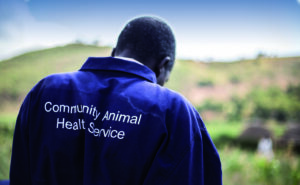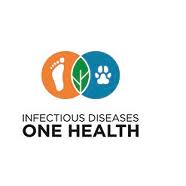The African Union Inter – African Bureau for Animal Resources (AU-IBAR) is a specialized technical office of the African Union that provides leadership in the development of animal resources for Africa and plays a pivotal role in driving sustainable development and conservation efforts related to animal resources in Africa, collaborating with various stakeholders to achieve its objectives.
The bureau together with the Food and Agriculture Organization (FAO) are bolstering a collaboration focusing on sustainable livestock, disease control and agriculture in Africa. The pivotal meeting between AU-IBAR and FAO emphasized the enduring partnership, focusing on sustainable livestock and animal health. The discussions were led by Dr. Thanawat Tiensin of FAO and Dr. Huyam Salih of AU-IBAR, highlighting the significance of a One Health approach.
The major highlights of the discussion included the following:
Overall, the collaboration between AU-IBAR and FAO is set to drive transformative change in the livestock sector, promoting sustainable practices and ensuring the resilience of agricultural systems in Africa and beyond leveraging a One Health approach to address global animal health challenges. The collaboration’s impact extends to economic stability, livelihood enhancement, and the overall well-being of communities reliant on livestock for sustenance and income.
Community-based animal health workers (CAHWs) are present in dozens of countries of Asia, Africa, and Latin America. They deliver valuable animal health services to livestock keepers in rural areas where other animal health service providers are lacking. Despite CAHWs’ important role in providing animal health services to populations that depend heavily on animals for their livelihoods and food security, the successful, sustainable development and deployment of CAHWs faces numerous challenges and constraints.
To address these, the World Organisation for Animal Health (WOAH) and VSF International jointly implemented a two-year project entitled “Strengthening the enabling environment for community animal health workers through development of competency and curricula guidelines,”.

As of the beginning of 2023, WOAH convened its first meeting of the Ad Hoc Group of international experts, who are tasked with developing the minimum competencies expected for CAHWs and the training curriculum needed to achieve these competencies, based on an analysis of global training materials undertaken by a WOAH expert together with data from in-depth country case studies on CAHW programmes including field visits and stakeholder interviews in Burundi, Cambodia, Niger, and South Sudan in order to ensure a broad spectrum of contexts, in terms of livestock production systems, training, supervision relationships and business models.
The report provides an overview of the approaches that have been taken so far (in terms of national policy frameworks, project planning and design, selection and training of CAHWs, and supervision and monitoring mechanisms) and provides targeted recommendations to improve the sustainability of future CAHW programs. CAHWs’ contributions to One Health and opportunities offered by more integration of women in CAHW programs are also highlighted and discussed.
http://vsf-international.org/wp-content/uploads/2023/03/EN_Report-CAHWs-2023.pdf
The article titled “A One Health Framework for Estimating the Economic Costs of Zoonotic Diseases on Society” by Clare Narrod, Jakob Zinsstag, and Marites Tiangco presents a comprehensive framework for assessing the economic impact of zoonotic diseases on society. The study emphasizes the need for a multi-sectoral approach to effectively address zoonotic diseases and their associated costs.
The framework consists of four essential steps that include estimating the extent of the disease and potential spread, estimating the cost of zoonotic disease on livelihoods outcomes (income, health, and trade), including environmental impacts, assessing the cost-effectiveness of risk management strategies currently employed for reduction of human and animal zoonotic disease exposure risk and identifying factors affecting adoption of zoonotic risk reduction strategies in poor households, the commercial sector and government bodies. By following these steps, the framework aims to provide a holistic understanding of the economic implications of zoonotic diseases and guide policymakers and stakeholders in making informed decisions.
The authors highlight the importance of collaboration across various sectors, including human health, animal health, agriculture, and environment, to effectively combat zoonotic diseases. The framework also incorporates a toolkit of existing resources, such as databases, models and guidelines to support the implementation of the framework. This toolkit enables policymakers and researchers to access valuable information and tools that facilitate the estimation of economic costs and the development of targeted interventions.
Overall, this article provides a comprehensive and standardized approach to estimate the economic costs associated with zoonotic diseases, thereby enabling policymakers to make informed decisions and allocate resources effectively to prevent and control these diseases. By implementing the framework, stakeholders can work together to safeguard public health and mitigate the economic impact of zoonotic diseases on society.

In West Africa, as in many parts of the world, people are interacting more and more with many and different animal species, increasing the risk of zoonotic diseases as well as the emergence of novel pathogens in new species or habitats. A new three-year research project using a One Health approach is being conducted in Guinea, Nigeria, Liberia, and Sierra Leone, in collaboration with universities, government institutions, civil society organizations, and community action networks in the UK and Australia. The research aims to identify sustainable ways of managing the increased risk of zoonotic diseases caused by human-animal interactions. The project will investigate the relationship between land use change and zoonotic disease incidence, disruption of health services from outbreaks, the impact of disease outbreaks on rural women and food security, and more. The findings will highlight the influence of land use change and other factors on disease outbreaks and demonstrate community engagement in disease surveillance and prevention. The project aims to build consensus around policy changes and engage stakeholders at all levels to maximize the impact of its research. More details about the research can be found in the link https://devpolicy.org/infectious-diseases-and-one-health-a-new-research-project-20230417/
The article titled “One Health and One Welfare: A Framework for Animal Welfare in the Context of One Health” explores the relationship between animal welfare and human well-being. The article argues that animal welfare is a critical component of One Health and provides a roadmap for integrating animal welfare into policy and decision-making. One Welfare is an emerging concept that includes animal welfare, environmental conservation, human welfare, and societal mental health. It further emphasizes the importance of considering animal welfare in the context of One Health and provides insights into the process of integrating animal welfare into public health policy and decision-making.
The article begins by describing the connections between One Health and One Welfare and the need for a holistic approach to public health and animal welfare. It then outlines the principles of One Welfare and how they relate to animal welfare, environmental conservation, human welfare, and societal mental health. The article provides case studies of successful One Welfare initiatives and recommends best practices for implementing One Welfare at the global, national, and local levels.
The author concludes by emphasizing the importance of One Welfare for achieving sustainable development and mitigating the impact of emerging zoonotic diseases. It stresses the need for collaborative partnerships between public health, animal health, and environmental health professionals to implement One Welfare successfully. Overall, the article provides a comprehensive examination of the One Welfare framework and its importance for public health and animal welfare.
info@awecca.org
+256-703-560277
Livingstone Drive, COVAB Veterinary Complex, Makerere University
P.O BOX 7062 Kampala, Uganda
Have an Inquiry?
Copyright © awecca 2023